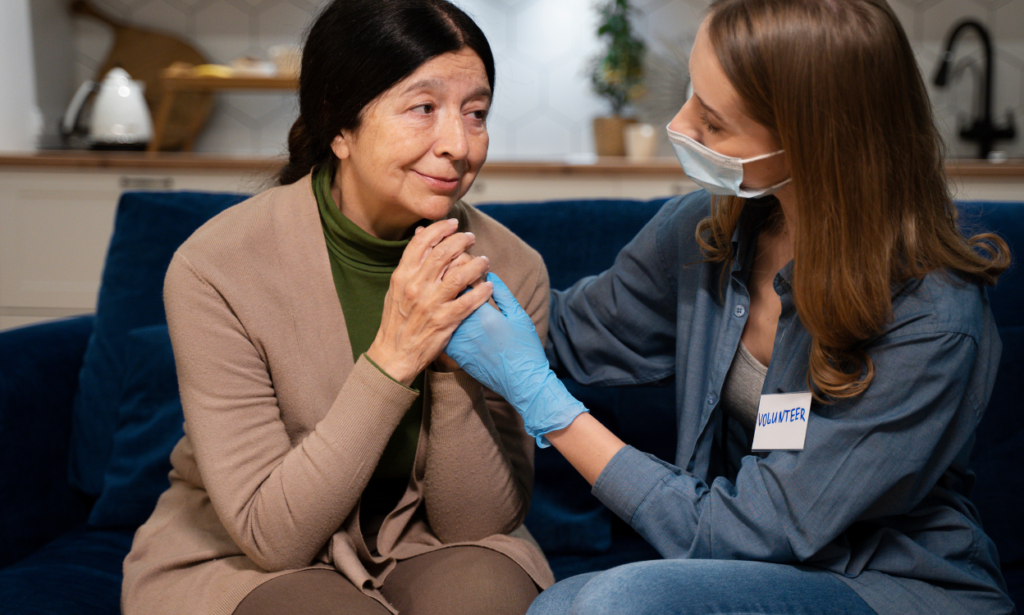
Respite care services are very important for seniors and their family caregivers because they help them stay healthy and improve their quality of life. These specialized services provide short-term relief while making sure that elderly people get ongoing, professional care that meets their physical, emotional, and social needs.
Understanding Respite Care for Seniors
Respite care is short-term care that gives primary caregivers the breaks they need while still providing high-quality support for seniors. This service includes a number of different types of care, such as help at home, adult day programs, and residential facilities.
Key Service Types:
- Personal care and companionship at home
- Adult day care programs with planned activities
- Facilities for short-term residential care
- Help with specific memory care
Physical Health Benefits for Seniors
Enhanced Safety and Medical Monitoring
Professional respite caregivers make sure that medications are taken correctly, keep an eye on vital signs, and help prevent falls. Regular health checks help find problems early, cut down on trips to the emergency room, and lead to better health outcomes.
Structured Physical Activity Programs
Respite care includes personalized exercise programs that help people stay mobile and strong. These programs include:
- Gentle walking exercises that are good for your heart
- Stretching while sitting down can help stop muscles from getting weaker
- Training to improve balance and lower the risk of falling
- Activities that help joints move more easily
Mental Health and Cognitive Stimulation
Cognitive engagement is very important for keeping your mind sharp and your emotions stable. Respite care providers use activities that have been shown to improve mental health and cognitive function.
Cognitive Enhancement Activities:
- Puzzles and games that test your memory
- Sessions of music therapy
- Arts and crafts that are fun
- Programs for socializing
These activities can help slow down cognitive decline, which is especially good for older people with dementia or mild cognitive impairment.
Social Engagement and Emotional Support
Combating Isolation and Loneliness
Being alone a lot has a big effect on the mental health of older people. Respite care gives people chances to make real social connections through group activities and one-on-one time.
Building Community Connections
Seniors need to stay socially active to keep their sense of identity and purpose. Professional caregivers help people talk to each other, eat together, and take part in community activities that are good for their mental health.

Caregiver Support and Family Benefits
Preventing Caregiver Burnout
Family caregivers are very stressed and tired. Respite care gives caregivers much-needed breaks so they can:
- Go to personal appointments without worrying
- Keep a job and stay financially stable
- Keep their health and relationships strong
- Take a break to recharge emotionally so you can be a better caregiver.
Peace of Mind Through Professional Care
Family members can relax and focus on their health when they know that their loved one is getting good care. This peace of mind makes the family work better together and makes the care better.
Long-term Care Planning and Transition Support
Many families who are thinking about long-term care options use respite care as a first step. This slow introduction helps seniors and their families get used to outside care services, which makes future changes easier and less stressful.
Transition Benefits:
- Getting used to a new routine
- Building trust with professional caregivers
- Evaluating care needs and preferences
- Less stress about making decisions about long-term care
Specialized Care for Memory Issues
Seniors with dementia, Alzheimer’s, or other memory problems need special care. Trained respite care providers know how to spot changes in behavior and take the right steps to calm people down and make the environment more peaceful.
Memory care specialists work to keep routines that are familiar while also providing mental stimulation that helps people keep their skills and improve their daily lives.
Conclusion:
Respite care services help seniors live better lives and help family caregivers by giving them a full range of support. These services help older people stay independent, safe, and emotionally healthy by giving them professional care, social interaction, mental stimulation, and health monitoring.
The benefits go beyond meeting immediate care needs; they also help with long-term health and family stability. Quality respite care is an investment in both the health of seniors and the long-term health of caregivers.
Home Health care services at JGC Healthcare that put your family’s health first and offer professional respite care options, look into how specialized care can improve your loved one’s quality of life, and help you with your caregiving journey.
FAQ’s:
Q: How long can respite care services go on?
Respite care can last anywhere from a few hours to a few weeks, depending on the needs of the family and the person receiving care.
Q: What kinds of things do older people do while they are in respite care?
Some of the activities are physical exercises, cognitive games, social interactions, creative arts, and therapeutic programs that are made to fit each person’s needs.
Q: Is respite care good for older people with dementia?
Yes, specialized respite care providers know how to care for people with dementia and make sure that their memory care needs are met in safe and supportive settings.
Q: What are the advantages of respite care for family caregivers?
It keeps caregivers healthy, gives them time to take care of their own needs, and gives them peace of mind by having professional care.
Q: Can respite care help you keep track of your medications?
Professional respite caregivers help with medication reminders, monitoring, and working with healthcare providers to make sure medications are taken correctly.
